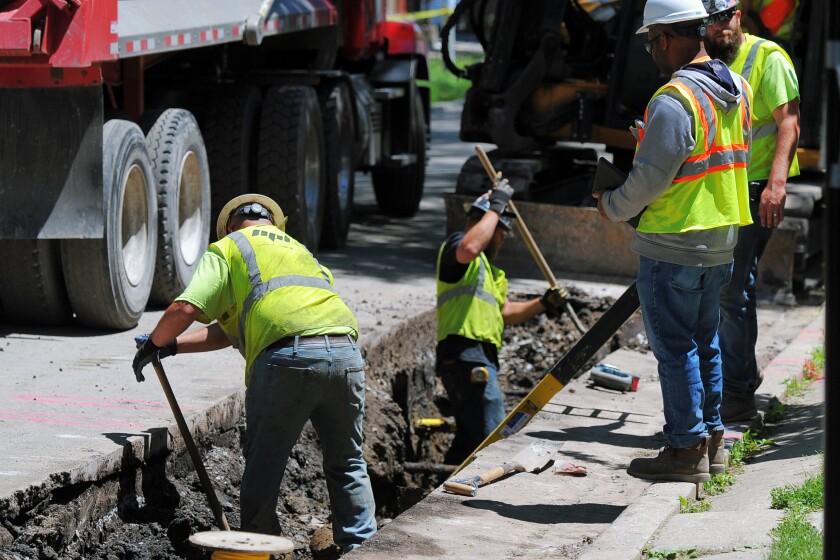In a recent decision impacting Chicago residents, utility regulators have greenlit a modified rate increase for Peoples Gas, albeit significantly lower than the initially proposed amount. The Illinois Commerce Commission (ICC) unanimously agreed to slash the gas provider’s requested hike from nearly $8 million to $1.5 million.

The move comes amidst heated debates surrounding the necessity and fairness of such a rate hike. Critics argue that customers should not bear the brunt of additional costs for the utility’s pipeline replacement project. According to them, Peoples Gas should prioritize completing this vital infrastructure upgrade without burdening consumers with inflated bills.
Responding to the decision, Peoples Gas expressed concerns about the potential impact on the safety and reliability of Chicago’s energy system. Marc Poulos, representing the Illinois, Indiana, Iowa Foundation for Fair Contracting, emphasized the importance of modernizing the system while cautioning against a rushed transition to an all-electric setup.
Opponents of the rate hike, including the Illinois Attorney General and consumer advocacy groups, insist that Peoples Gas must demonstrate tangible progress in replacing old and leaking gas pipes before seeking further increases. Last year, the utility faced similar scrutiny when it initially requested a $402 million hike, primarily for funding pipeline replacements. However, the ICC intervened, reducing the increase to $300 million and ordering a pause on the pipeline program for a thorough investigation into best practices.
Sarah Moskowitz, Executive Director of the Citizens Utility Board, raised concerns about the financial strain on consumers, particularly amidst widespread struggles with bill payments. She highlighted the irony of consumers facing higher bills while the utility enjoys record profits.
With Peoples Gas planning to appeal the commission’s decision, the controversy surrounding utility rates and infrastructure upgrades is far from over. As Chicago residents brace for potential impacts on their gas bills, the debate over balancing consumer interests with the need for essential infrastructure improvements continues to unfold.